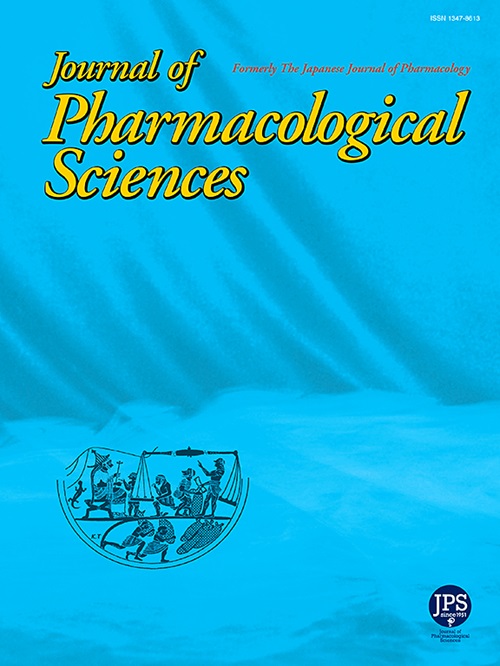Minocycline prevents monocrotaline-induced pulmonary hypertension through the attenuation of endothelial dysfunction and vascular wall thickening
IF 3
3区 医学
Q2 PHARMACOLOGY & PHARMACY
引用次数: 0
Abstract
Pulmonary hypertension (PH) is a progressive disease with a poor prognosis in which high pulmonary artery pressure leads to right heart failure, therefore, there is an urgent need to elucidate pathological mechanisms and to develop new treatment for PH. Minocycline has not only antibacterial effects but also anti-inflammatory effects in various tissues. We hypothesize that minocycline could prevent PH development in rats. PH was induced by a single intraperitoneal injection of monocrotaline (MCT, 60 mg/kg), and minocycline (20 mg/kg) was treated daily for 14 days from the day of MCT injection. Minocycline inhibited the rise in mean pulmonary arterial pressure of MCT-induced PH rats and improved the attenuation of acetylcholine-induced relaxation in isolated intrapulmonary artery from MCT-induced PH rats. Minocycline further inhibited vascular wall thickening of pulmonary arterioles and showed a tendency to inhibit the muscularization of pulmonary arterioles in MCT-induced PH rats. PH-preventing effect of minocycline does not seem to be mediated via the actions on matrix metalloproteinase, inflammatory cytokines, and mast cells migration in lung. In summary, we revealed for the first time that minocycline ameliorated the MCT-induced PH in rats, at least partly through preventing pulmonary artery endothelial dysfunction and wall thickening.
二甲胺四环素通过抑制内皮功能障碍和血管壁增厚来预防单罗他林诱导的肺动脉高压。
肺动脉高压(Pulmonary hypertension, PH)是一种预后较差的进行性疾病,肺动脉高压可导致右心衰,因此迫切需要阐明其病理机制并开发新的治疗方法。米诺环素不仅具有抗菌作用,还具有多种组织的抗炎作用。我们假设二甲胺四环素可以阻止大鼠PH的发展。从注射MCT之日起,每天单次腹腔注射二甲胺四环素(20 mg/kg)诱导PH,连续14天。米诺环素抑制mct诱导的PH大鼠平均肺动脉压升高,改善mct诱导的PH大鼠离体肺内动脉乙酰胆碱诱导的舒张衰减。二甲胺四环素进一步抑制mct诱导的PH大鼠肺小动脉血管壁增厚,并有抑制肺小动脉肌肉化的趋势。二甲胺四环素的ph预防作用似乎不是通过对肺基质金属蛋白酶、炎症细胞因子和肥大细胞迁移的作用介导的。总之,我们首次发现二甲胺四环素改善mct诱导的大鼠PH,至少部分是通过防止肺动脉内皮功能障碍和壁增厚。
本文章由计算机程序翻译,如有差异,请以英文原文为准。
求助全文
约1分钟内获得全文
求助全文
来源期刊
CiteScore
6.20
自引率
2.90%
发文量
104
审稿时长
31 days
期刊介绍:
Journal of Pharmacological Sciences (JPS) is an international open access journal intended for the advancement of pharmacological sciences in the world. The Journal welcomes submissions in all fields of experimental and clinical pharmacology, including neuroscience, and biochemical, cellular, and molecular pharmacology for publication as Reviews, Full Papers or Short Communications. Short Communications are short research article intended to provide novel and exciting pharmacological findings. Manuscripts concerning descriptive case reports, pharmacokinetic and pharmacodynamic studies without pharmacological mechanism and dose-response determinations are not acceptable and will be rejected without peer review. The ethnopharmacological studies are also out of the scope of this journal. Furthermore, JPS does not publish work on the actions of biological extracts unknown chemical composition.

 求助内容:
求助内容: 应助结果提醒方式:
应助结果提醒方式:


